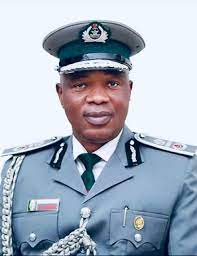
Customs and OAGF: A Strategic Alliance for Nigeria’s Fiscal Stability
By Abdulsalam Mahmud
In the pursuit of national prosperity, the conversation around public revenue is more than a fiscal matter. It is a mirror into the soul of governance. For every kilometre of road not paved, every hospital unequipped and every classroom without a teacher, there is often a backstory of inadequate revenue.
Nigeria’s dream of transformation, no matter how noble or urgent, cannot take flight without a sustainable strategy for public finance. But how a country earns its money is as important as how it spends it.
Revenue generation is not just about collection, it is about credibility — and that is where institutions matter. Historically, Nigeria’s public revenue has swung on the unpredictable pendulum of oil prices.
While oil windfalls brought temporary relief, they also bred complacency, diluting the urgency to develop resilient, non-oil revenue sources. The current economic climate, however, is different.
With rising debt servicing costs, inflationary pressures and a weak naira, the focus has shifted — rightly — to how the state can shore up its income. It is a moment that demands bold ideas, institutional synergy and a willingness to innovate beyond bureaucratic turf wars.
There is also a psychological dimension to public revenue. Citizens are more likely to comply with taxes when they perceive transparency and accountability.
The public wants to see that the funds they contribute are not disappearing into the abyss of systemic corruption. Hence, collaboration between key revenue-generating and regulatory institutions is not just strategic – it is symbolic.
It sends a message that the government itself is tightening the bolts and closing the loopholes. It is in this context that the recent meeting between the Nigeria Customs Service (NCS) management and the Office of the Accountant-General of the Federation should be seen.
The announcement that Customs Comptroller-General, Bashir Adewale Adeniyi, and Accountant-General of the Federation (AGF), Shamsudeen Ogunjimi, are forging a partnership to enhance national revenue and strengthen officer training is therefore not a mere routine visit.
It is a quiet but firm recalibration of Nigeria’s fiscal posture. The meeting, held at the Customs Headquarters in Abuja, on Wednesday, was more than ceremonial.
It was a reflection of deliberate synergy between two critical agencies tasked with safeguarding and expanding the government’s revenue base. While welcoming the AGF and his delegation, CGC Adeniyi acknowledged the pivotal role played by the Accountant-General’s office in national revenue management.
He described the visit as “timely, symbolic and remarkable.” He spoke with clarity and purpose about the Customs’ own efforts, reminding his guests that the NCS’ revenue had grown by over 70% by the end of 2024 — a feat that speaks volumes of institutional discipline and reform-minded leadership.
“We have seen how critical revenue generation is in this country, and we are doing our best from our part,” he said. The meeting also birthed a promising proposal — a joint training programme between both institutions aimed at strengthening inter-agency capacity and understanding.
Adeniyi welcomed the idea with enthusiasm, pledging his support to make the initiative a success. On his part, AGF Ogunjimi was equally forthright, commending the Customs CG’s proactive leadership and expressing optimism that the collaboration would be deepened over time.
“This collaboration has just started,” Ogunjimi noted, promising a robust working relationship going forward. More than anything, this partnership symbolises a new kind of thinking in public service — one that is rooted in cooperation rather than competition.
If fully implemented, joint trainings will not only improve skill sets of officers of the two agencies, but also dismantle long-standing silos that often undermine public sector efficiency.
Institutions, after all, are only as strong as their people. And people grow best when they learn together. As Nigeria continues its uphill journey toward economic self-reliance, the role of institutions like the Nigeria Customs and the Office of the AGF becomes even more central.
Their ability to work together, share knowledge and harmonise strategies could define whether Nigeria merely survives the times or finally begins to prosper from within. The real revenue, in the end, is not just monetary.
It is trust. It is partnership. It is progress. And if this new synergy is anything to go by, then perhaps Nigeria’s public finance story is turning a new page — one that promises to be less about deficits and more about delivery.
Mahmud, Deputy Editor of PRNigeria, can be reached at: [email protected].
